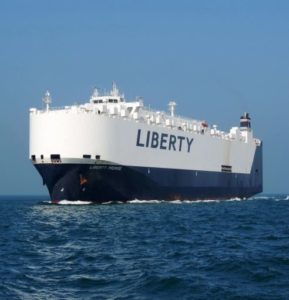
The House Armed Services Subcommittee on Seapower and Projection Forces authorized a new Tanker Security Fleet program of 10 civilian-operated petroleum tankers in its markup of the FY ’20 defense authorization bill Tuesday. “This is somewhat similar to the Maritime Security Program (MSP). However, it will be exclusive for tankers,” senior committee staff told reporters on Monday. The committee’s rationale is that the U.S.-flagged tanker fleet has too few vessels for what is required if the U.S. Navy went into…

 By
By 











